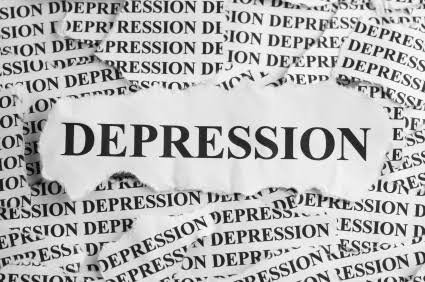A Brief Analysis !
Political alienation is defined as attitudes of estrangement from the political system. Depression is a common mental disorder that causes a persistent feeling of sadness and loss of interest. Hence, political alienation & depression are caused in a politically unstable society where political & human rights are denied by the system.
Following are the causes of political alienation and depression :
1.
Mental health disorders, such as anxiety, obsessive compulsive disorder, and schizophrenia.
2.
Post-traumatic stress disorder (PTSD), which can result from exposure to traumatic events such as war, violence, or abuse.
3.
Self-stigma as a result of mental illness, which can lead to shame, guilt, and isolation.
4.
Chronic pain or other physical conditions that may affect one’s quality of life or social interactions.
5.
Social changes such as moving to a new place, changing jobs or schools, or losing a loved one.
6.
Political beliefs that differ from the dominant or prevailing views in one’s society or environment. For example, democrats may experience more depressive symptoms than authoritarian ones in a growing conservative & authoritarian political climate.
7.
Lack of social support, trust, or participation in civic activities. This can lead to feelings of loneliness, isolation, or powerlessness.
There are different ways to address political alienation and depression at individual and collective levels. Some examples are:
1.
Seeking professional help from a mental health provider who can diagnose the condition and offer appropriate treatment options such as medication, psychotherapy, or counseling.
2.
Joining a support group or a community organization that shares one’s values, interests, or goals. This can provide a sense of belonging, solidarity, and empowerment.
3.
Engaging in self-care activities such as exercise, meditation, hobbies, or relaxation. These can help reduce stress, improve mood, and enhance well-being.
4.
Advocating for social change or political reform that aligns with one’s beliefs or values. This can involve participating in protests, campaigns, petitions, or other forms of civic action.
5.
Educating oneself and others about the causes and effects of political alienation and depression. This can help raise awareness, reduce stigma, and promote dialogue and understanding.

Pakistan faces a political & economic crisis. There is a political instability in Pakistan. Therefore, people are anxious about their political future. People are depressed that their right to chose their representatives is not being honored. Then, there is no rule of law & fundamental rights are being compromised. Coupled with economic woes, people are facing political disorder. Therefore, it’s inevitable that the democracy & human rights are ensured in Pakistan in order to curtail political depression. Even, merely the freedom of speech & expression are enough to release political alienation & depression, for the time being. However, structural social, political & economic reforms are the way forward to cure political alienation & depression.
















